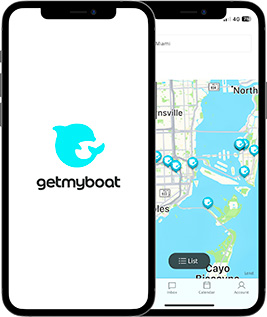All GetMyBoat operators are required to and are responsible for operating legally within and fully compliant of local guidelines — this includes obtaining proper registrations, passes, permits, etc., meeting vessel and captain requirements, using the correct docks and boating areas for commercial activities, and any other stipulations by your local laws and facility regulations.
To help, we’ve gathered the following essential details for boating in Toronto.
Safety Requirements:
- Vessel owners must ensure safe procedures, crew training, and maintenance of training records.
- Non-pleasure vessel crew members must have certifications in first aid, operator competency, and basic safety training, specific to vessel type, size, and voyage class.
- Vessel operators handling radio watches must possess appropriate radio operator certificates.
-All vessels must carry the proper safety essentials such as: Lifejackets, Visual Signals,Lifebuoys and Reboarding Devices.
Additional information can be found on the Safe Boating Guide
Environmental Regulations:
-Passenger watercraft for hire must comply with government rules based on boat type, class, and size to ensure safety and proper functioning.
- All motorized boats must have an approved muffler to reduce engine noise, operational at all times unless expressly permitted.
- Speed limits: 5 knots (10 km/hr) within 150 meters of any shoreline or breakwater, and 10 knots (19 km/hr) in all other 'Inner' and 'Outer' Harbour areas.
- Vessels are not allowed to create a wake in designated areas such as Toronto Island lagoons and nearby navigable waters.
Toronto Port Authority Powered Vessel Operator's Permit:
- Individuals under 18 years of age are not permitted to operate power vessels for hire in the Port and Harbour of Toronto.
- All operators, including visitors, must possess a valid Toronto Port Authority Powered Vessel Operator's Permit. You can Apply and find additional information at the Ports Toronto website.
Insurance:
-All vessels using port facilities must be insured, and proof of insurance may be requested by the Authority at any time.
-P&I insurance or equivalent wreck removal insurance is recommended, as it covers shipowners, operators, and charterers against liabilities during their vessel's commercial operation. You can contact our Insurance partner BCI for a quote.
Vessel Registration:
- Smaller commercial vessels under 15 gross tons engaged in fishing, passenger transportation, or cargo shipping should be registered under the Small Vessel Register (SVR).
- Larger commercial vessels over 15 gross tons or involved in certain international activities should be registered under the Canadian Register of Vessels (CRV).
Licensing and Inspection by Transport Canada:
- Vessels with a gross tonnage range of 15 to 150 must undergo inspection and certification by Transport Canada.
- Smaller vessels carrying over 12 passengers are also subject to inspection and certification.
- Canadian-flagged vessels that are 24 meters or larger and intended for commercial use require inspection and certification through the Delegated Statutory Inspection Program, facilitated by approved organizations. You can find more information on the Transport Canada website
- Regular inspections by authorized inspectors are necessary to comply with safety standards and maintenance requirements set and enforced by Transport Canada. Proper maintenance is crucial to prevent accidents and breakdowns.
Pleasure Craft Operator Card
All boat operators are required to demonstrate proof of competency and carry a Pleasure Craft Operator Card. However, No one under 14 years is eligible for the Operator Permit if operating in the Port of Toronto
The Pleasure Craft Operator Card can be obtained from BoatSmart .
Operator Certification:
- Small Vessel Operator Proficiency (SVOP) is required for operators of small commercial vessels under 5 gross tons in near-coastal voyages.
- Maritime Basic certification is needed for operators of vessels over 5 gross tons in sheltered waters.
- Marine Advanced certification is necessary for operators of larger vessels in more complex voyages and operations.
- Watch keeping Mate certification is designed for specific positions on larger vessels, typically serving as a mate or deck officer.
- Master Mariner is the highest certification level required for individuals in command of larger vessels.
Obtaining the necessary licenses and permits is vital for all commercial boating operations. For any additional inquiries or clarifications, you can get in touch with Marine Safety through email at marinesafety-securitemaritime@tc.gc.ca or by phone at 1-855-859-3123 or 613-991-3135.















